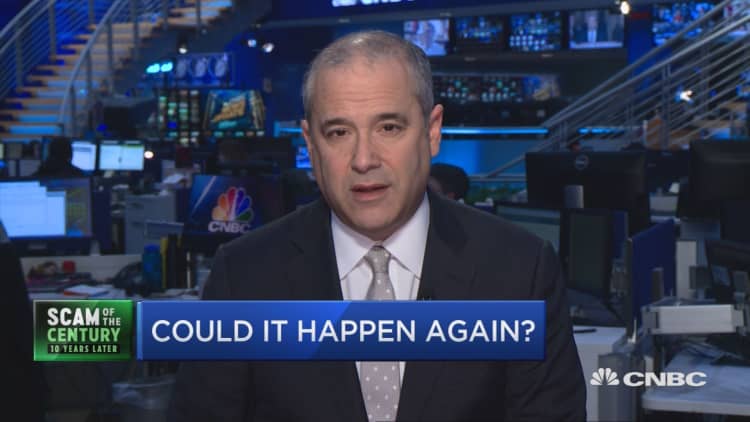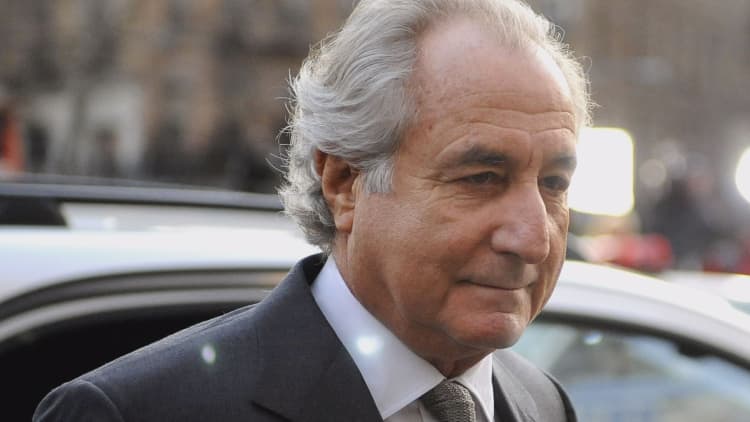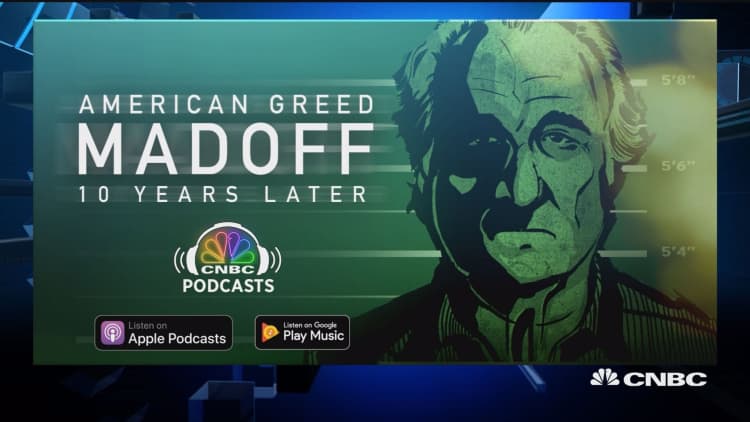
Former Assistant U.S. Attorney Marc Litt recalls sitting in Bernard Madoff's office in New York's famed Lipstick Building, soon after it had been turned into a federal crime scene. Madoff had been arrested Dec. 11, 2008, having confessed to running the largest Ponzi scheme in history. As the lead prosecutor, Litt was responsible for making some sense out of the massive, still unfolding fraud.
"There were pictures of his boats on the wall and they were all named 'Bull,'" he said in an interview.
Sitting across from Madoff's desk, where countless clients sat over the years, Litt also noticed a small sculpture, but it took a moment to figure out what it was.
"I saw that it was a sculpture of a wood screw, and it all of a sudden hit me that here I was, the prospective investor, surrounded by bull and getting screwed, but I didn't know it," he said.
Ten years later, Litt is in private practice as a partner at Wachtel Missry in New York, where — from an office that happens to overlook the Lipstick Building — he advises the types of institutional clients that might have invested with Madoff back in the day. He says the scandal forced the financial industry to become far more careful. For all the signs of progress, however, no one seems willing to rule out a Madoff-size financial fraud happening again.
"By all accounts, the amount of money that's gone into compliance at the major financial institutions in the United States is astonishing," he said. "It's probably the fastest-growing employment component of financial institutions."
JPMorgan Chase, the nation's largest bank and Madoff's primary banker, was forced to overhaul its compliance systems and pay $2.6 billion in fines and penalties under a deferred prosecution agreement with the Justice Department. Prosecutors alleged that the bank failed to employ adequate controls that might have caught the Madoff fraud. In 2016, prosecutors told a court that the bank had paid its fines and adopted the agreed upon reforms, and they dropped the charges.

Investigating the investigators
Regulators were forced to make changes, too — most notably the Securities and Exchange Commission. For years, the agency had missed obvious signs of the fraud, including multiple attempts by Boston-based fraud investigator Harry Markopolos to blow the whistle. His warnings were all but ignored.
"I gift wrapped and delivered the largest Ponzi scheme in history to them, and somehow they couldn't be bothered to conduct a thorough and proper investigation," Markopolos testified before a congressional subcommittee in 2009.
The SEC's Office of Inspector General, in a scathing 2009 report, said Markopolos was not far off the mark.
"The OIG found that between June 1992 and December 2008 when Madoff confessed, the SEC received six substantive complaints that raised significant red flags concerning Madoff's hedge fund operations and should have led to questions about whether Madoff was actually engaged in trading," the report said.
For more on Madoff: 10 Years Later, subscribe to American Greed on Apple Podcasts or wherever you listen.
In response, the agency overhauled its enforcement operation. And under the Dodd-Frank law, passed by Congress in the wake of the financial crisis, the agency created an Office of the Whistleblower. To date, the office has awarded more than $326 million to tipsters whose information has led to successful enforcement actions.
SEC Chairman Jay Clayton says the Madoff scandal taught the agency a painful but important lesson.
"There are 4,600 people at the SEC. If they don't have it in the front of their mind, they certainly have Madoff in the back of their mind, and we continue to worry that there's something like that on the horizon," he said in an interview last month on CNBC's "Closing Bell."
Madoff defense attorney Ira Lee Sorkin — himself a former SEC regional director — believes the regulators have made significant progress.
"The government now knows, or at least the SEC and the Department of Justice, what type of things to look for and what type of questions to ask," Sorkin said.
The next Madoff?
Experts are concerned that renewed volatility in the financial markets could reveal new frauds that were carried out while markets were rising.
"Scandals are never the same. They rhyme," Clayton said. "I worry all of the time about what the next scandal might be."
Litt said the Madoff scandal was unique in terms of the numbers of factors it brought together at once.

"It's highly unusual to have somebody perpetrate a Ponzi scheme from essentially inside a registered broker dealer," he said. "It's also unusual to have somebody who had reputation in the industry, was the chairman ex-officio of the Nasdaq and who was very well connected in both the New York and Palm Beach communities and the Jewish community."
Even so, Litt said, it could happen again.
"Look, there will always be Ponzi schemes. There will always be securities fraud. There are always, unfortunately, people who are willing to suspend their disbelief and get duped by people who are selling something that's too good to be true," he said.
In the case of Madoff, those people included sophisticated individuals and institutions, lured by Madoff's promise of steady, above-market returns. No amount of regulation can control that mentality.
"At the end of the day, the people who have to ask the questions are the investors, and essentially say, 'How are you doing these returns?'" Sorkin said. "The key word here is 'transparency.' You've got to ask questions, and that's really what I think the public and the government has learned from this type of case."
How can you protect yourself from the next Madoff scandal? Are we safer now than we were then? A special "American Greed" podcast series: "Madoff: Ten Years Later" — explores these questions and more. Subscribe at Apple Podcasts, or wherever you listen.


